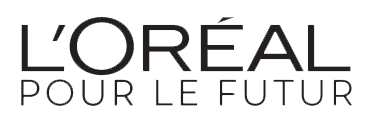The Group joins forces with its suppliers to develop its solidarity programmes and promote a more inclusive society. By 2030,Solidarity Sourcing will have helped to achieve L’Oréal’s goal of enabling 100,000 additional people who are socially or economically vulnerable to access employment.

In 2022, 85,544 people accessed work through the Solidarity Sourcing programme, 4,406 more people than in 2020.

Created in 2010, Solidarity Sourcing is L’Oréal’s global inclusive sourcing programme. It uses the Group’s purchasing power to serve social inclusion. L’Oréal allocates part of its total purchasing volume to suppliers that provide employment and a sustainable income to people who are generally excluded from the labour market. In all regions of the world in which L’Oréal is present, the programme supports:
- companies that employ people from economically vulnerable communities. These communities are identified with reference to our DE&I policy: for example, people with disabilities, senior citizens, people in exile etc. Local authority guidelines are also considered where relevant(definition of vulnerable geographic areas: e.g. rural areas, priority urban neighbourhoods [QPV] in France) as well as international standards such as Women-Owned Businesses as defined by the We Connect guidelines; and
- companies that struggle to access major international calls for tenders.
By applying fair trade principles in their sourcing strategy, the Group’s raw materials purchasing teams enable a positive social impact while integrating the challenges of responsible agricultural practices, environmental protection and biodiversity.
One example of this is the solidarity sourcing of she a in Burkina Faso. Since 2014, 100% of our she a volumes have been sourced from Burkina Faso. The Group’s purchasing contracts ensure prefinancing of crops, respect for a fair price, access to training and the establishment of community projects for25,510 women working together within groupings of women producers. More information is available at Shea Sourcing in Burkina Faso ( loreal.com).
In the ongoing progress approach, significant advances were made in the shea butter project in 2020:
- the shea nuts purchased by the Group obtained the Fair for Life fair trade certification standard, and
- an inclusive pilot insurance project was created with partners, including the Group’s shea butter suppliers and an insurance specialist. This is a unique, innovative health and crop loss micro-insurance project. It is designed to improve the economic resilience of producers by offering them financial cover in the event of hospitalisations or accidents related to the shea harvest.
The following solidarity sourcing initiatives should also be mentioned:
- The Group and its suppliers share joint commitments to support the emancipation of women.
- In 39 countries, L’Oréal supports Solidarity Sourcing projects related to the emancipation of women, which represent 42,542 jobs.
- In Latin America, 704 single mothers who are solely responsible for their household income are employed full‑time across 10 Group suppliers (Mexico, Peru and Colombia).
- In China, L’Oréal supports 33 companies owned and run by women, which employ 1,529 people between them.
- As part of its global Supplier Diversity programme:
- L’Oréal supports 4,906 jobs at certified suppliers that are majority-owned and -led by women, minorities, people from the LGBTQIA+ community, veterans or people with a disability.
- L’Oréal USA has partnered with Creator Deck, an agency certified by the Women’s Business Enterprise National Council (WBENC). This partnership illustrates the unique value that diversity-focused companies bring to the Group and how they are fostering innovation. Its diversified database of influencers and its social media content enable brands such as Maybelline and NYX to promote a daring and inclusive vision of beauty.
- In 29 countries, L’Oréal supports access to employment for 1,390 people over 50 years of age through its purchases of packaging production, POS items, promotional items and services.
The Group is convinced of the need to act collectively to transform the corporate business model and increase the impact. It therefore joined the Business for Inclusive Growth(B4IG) coalition from the beginning. Housed within the OECD, this initiative covers 31 international companies that decided to join forces around the central issue of fighting inequalities. In this context, L’Oréal is involved in the working group on inclusive purchasing and living wages, the publication of the Inclusive Sourcing methodology and several projects with a positive social impact within the B4IG incubator.
L’Oréal is committed to the living wage (1)
In line with its commitment to fair pay for all employees, L’Oréal is committed to ensuring that by 2030 all employees of its strategic suppliers receive a living wage from their employer (calculated in line with best practices). To build its living wage strategy and implementation plan, L’Oréal has partnered with the Fair Wage Network, a meticulous, internationally recognised NGO. To extend this approach to its strategic suppliers, the Group strives to establish dialogue, collaboration and common strategic frameworks with supply chain partners, but also with other companies, civil society stakeholders, governments etc.
(1) Definition of decent living wage in chapter 4.3.2.5.
